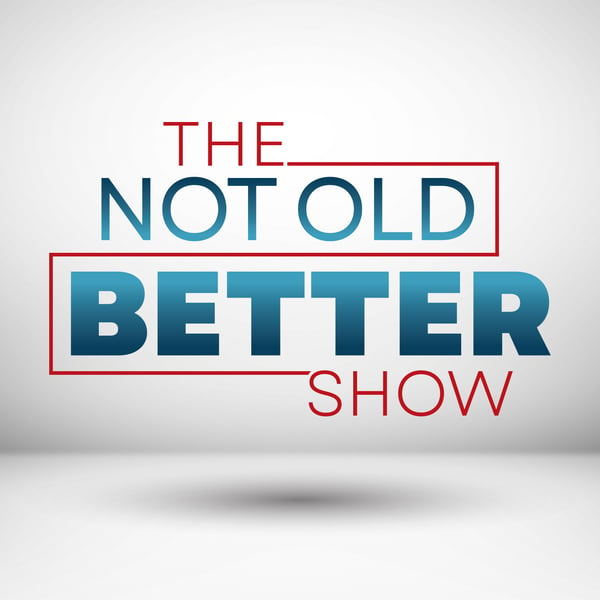Smithsonian Associates: Bright Circle: Five Remarkable Transcendentalist Women
The Not Old - Better Show
Paul Vogelzang
5 • 1.8K Ratings
🗓️ 16 March 2025
⏱️ 35 minutes
🧾️ Download transcript
Summary
Welcome to The Not Old Better Show, Smithsonian Associates Interview Series on radio and podcast. In 1839, five women gathered in a Boston parlor, asking two profound questions: What are we born to do? How shall we do it? Their answers helped shape one of the most important intellectual movements in American history—Transcendentalism.
We know the names Ralph Waldo Emerson and Henry David Thoreau. But what about Mary Moody Emerson, Elizabeth Palmer Peabody, Sophia Peabody Hawthorne, Lydia Jackson Emerson, and Margaret Fuller? These women weren’t just observers of the movement; they were its architects. They nurtured its philosophy, challenged its leaders, and laid the foundations for American feminism.
Yet, history largely ignored them. Their ideas, often groundbreaking, were overshadowed by the men they inspired. Until now.
Today, we welcome Smithsonian Associate Dr. Randall Fuller, the Herman Melville Distinguished Professor of 19th-Century American Literature at the University of Kansas, to uncover the hidden story of Transcendentalism. Smithsonian Associate Dr. Randall Fuller will be appearing at Smithsonian Associates coming up. Please check out our show notes today for details on his presentation, titled Bright Circle: Five Remarkable Transcendentalist Women. His book of the same name, available at Apple Books, Bright Circle: Five Remarkable Women in the Age of Transcendentalism, challenges what we think we know about this movement and restores these women to their rightful place in history.
Did Emerson’s most famous ideas actually begin with his aunt? Did a woman’s journal from Cuba shape the way Americans saw nature? And how did one wife push her husband to take a stand on abolition?
This is a conversation about the influence, erasure, and intellectual power of women in a time that tried to silence them.
So, let’s step back into the 19th century and meet the women who changed America—without ever getting the credit.
My thanks to Smithsonian Associate Dr. Randall Fuller will be appearing at Smithsonian Associates coming up. Please check out our show notes today for details on his presentation, titled Bright Circle: Five Remarkable Transcendentalist Women His book, of the same name, and available at Apple Books, Bright Circle: Five Remarkable Women in the Age of Transcendentalism. My thanks to the Smithsonian team for all they do to support the show. Please wish them a Happy 60th Anniversary this year! My thanks to Sam and Miranda Heninger for all they do to help ths show, too. And my thanks to you, our wonderful audience here on radio and podcast. Be well, be safe, and Let’s Talk About Better™ The Not Old Better Show, Smithsonian Associates Interview Series, thanks, everybody and we’ll see you next time.
Transcript
Click on a timestamp to play from that location
| 0:00.0 | Welcome to the Not Old Better Show, |
| 0:03.5 | Smithsonian Associates interview series on radio and podcast. |
| 0:07.9 | The show covering all things health, wellness, culture, and more. |
| 0:11.7 | The show for all of us who aren't old, were better. |
| 0:14.7 | Each week, we'll interview superstars, experts, and ordinary people doing extraordinary things, |
| 0:20.7 | all related to this wonderful experience |
| 0:23.1 | of getting better, not just older. Now, here's your host, the award-winning Paul Vogelzang. |
| 0:32.0 | Welcome to the Not Old Better Show, Smithsonian Associates Interview Series, 60th Anniversary on radio and podcasts. |
| 0:42.2 | In 1839, five women gathered in a Boston parlor asking two profound questions, what are we born to do? |
| 0:50.1 | How shall we do it? |
| 0:52.5 | Their answers helped shape one of the most important intellectual movements |
| 0:55.8 | in American history, transcendentalism. We know the names Ralph Waldo Emerson and Henry David Thoreau, |
| 1:03.4 | but what about Mary Moody Emerson, Elizabeth Palmer Peabody, Sophie Peabody Hawthorne, Lydia Jackson |
| 1:10.6 | Emerson, and Margaret Fuller. |
| 1:12.6 | What about them? |
| 1:13.6 | These women weren't just observers of the movement. |
| 1:16.6 | They were its architects. |
| 1:18.6 | They nurtured its philosophy, challenged its leaders, and laid the foundations for American feminism. |
| 1:25.6 | Yet, history largely ignored them. Their ideas, often groundbreaking, |
| 1:31.3 | were overshadowed by the men they inspired. Until now. Today, we welcome Smithsonian Associate, |
| 1:38.3 | Dr. Randall Fuller, the Herman Melville Distinguished Professor of 19th Century American Literature at the University of Kansas to uncover the hidden story of transcendentalism. |
| 1:49.8 | Smithsonian Associate Dr. Randall Fuller will be appearing at Smithsonian Associates coming up. |
... |
Please login to see the full transcript.
Disclaimer: The podcast and artwork embedded on this page are from Paul Vogelzang, and are the property of its owner and not affiliated with or endorsed by Tapesearch.
Generated transcripts are the property of Paul Vogelzang and are distributed freely under the Fair Use doctrine. Transcripts generated by Tapesearch are not guaranteed to be accurate.
Copyright © Tapesearch 2025.

